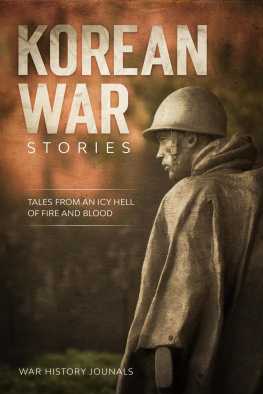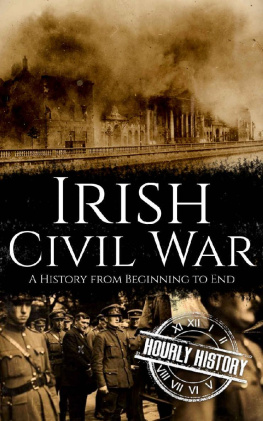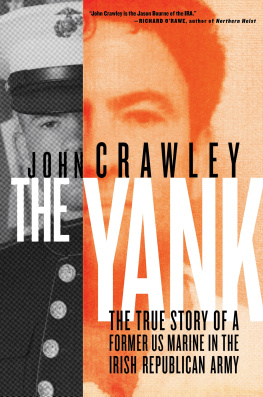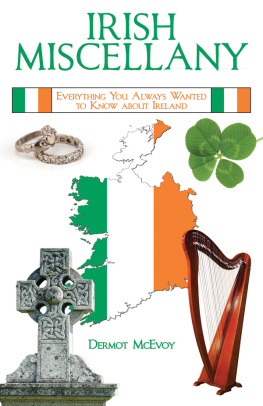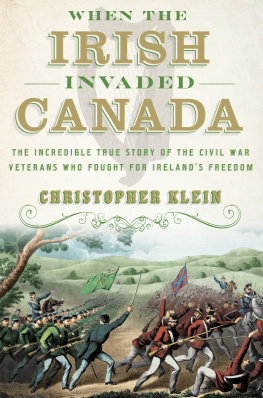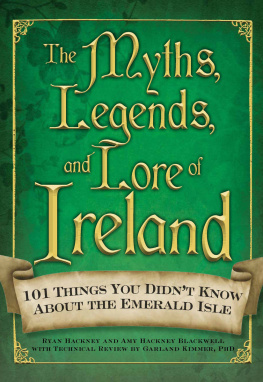War History Journals - Mission to Ireland: WWI True Story of Smuggling Guns to the Irish Coast
Here you can read online War History Journals - Mission to Ireland: WWI True Story of Smuggling Guns to the Irish Coast full text of the book (entire story) in english for free. Download pdf and epub, get meaning, cover and reviews about this ebook. year: 2020, publisher: Storyteller Books, LLC, genre: Non-fiction. Description of the work, (preface) as well as reviews are available. Best literature library LitArk.com created for fans of good reading and offers a wide selection of genres:
Romance novel
Science fiction
Adventure
Detective
Science
History
Home and family
Prose
Art
Politics
Computer
Non-fiction
Religion
Business
Children
Humor
Choose a favorite category and find really read worthwhile books. Enjoy immersion in the world of imagination, feel the emotions of the characters or learn something new for yourself, make an fascinating discovery.

- Book:Mission to Ireland: WWI True Story of Smuggling Guns to the Irish Coast
- Author:
- Publisher:Storyteller Books, LLC
- Genre:
- Year:2020
- Rating:3 / 5
- Favourites:Add to favourites
- Your mark:
- 60
- 1
- 2
- 3
- 4
- 5
Mission to Ireland: WWI True Story of Smuggling Guns to the Irish Coast: summary, description and annotation
We offer to read an annotation, description, summary or preface (depends on what the author of the book "Mission to Ireland: WWI True Story of Smuggling Guns to the Irish Coast" wrote himself). If you haven't found the necessary information about the book — write in the comments, we will try to find it.
Mission to Ireland: WWI True Story of Smuggling Guns to the Irish Coast — read online for free the complete book (whole text) full work
Below is the text of the book, divided by pages. System saving the place of the last page read, allows you to conveniently read the book "Mission to Ireland: WWI True Story of Smuggling Guns to the Irish Coast" online for free, without having to search again every time where you left off. Put a bookmark, and you can go to the page where you finished reading at any time.
Font size:
Interval:
Bookmark:


Copyright 2020 by War History Journals
All rights reserved.
This book is based on true events. Some of the characters and events portrayed in this book are fictitious. Any similarity to real persons, living or dead, is coincidental and not intended by the author.
No part of this book may be reproduced in any form or by any electronic or mechanical means, including information storage and retrieval systems, without written permission from the author, except for the use of brief quotations in a book review.
Where courage and judgement are equally required a clever coward is better than a stupid hero.
Michael Collins
At the outbreak of World War I, Sir Roger Casement arranged a meeting in New York with Germanys top-ranking diplomatCount Bernstorff. He proposed a plan that if Germany sold guns to the Irish Republican Army, the Irish would revolt against the English.
Sir Roger believed that Englands difficulty is Irelands opportunity. This plan would divert troops, supplies, and attention from the western front. Bernstorff was intrigued and sent the message to the German high command in Berlin.
Over the next two years, Sir Roger negotiated with the German government for troops, weapons, cash, and supplies. The Germans refused to land troops on Irish shores, but agreed to supply the rebels with guns, ammunition, and supplies to support the uprising.
This is the true story of Captain Karl Spindler. A German sea captain ordered to smuggle 20,000 rifles, 1,000,000 rounds of ammunition, 10 machine guns, and explosives to the Southwest coast of Ireland. These weapons were vital to support the Easter Uprising of 1916.
An impossible mission suited for only the bravest and most fearless of men.
I just returned from an exhausting duty and planned to enjoy a cozy rest in my cabin. Away from this storm, maybe even a few hours of sleep. A knock at the door. A messenger brought an urgent note from my commander. I steadied myself on the rolling ship. The roar of a violent gale flared up on the sea. Bluish-gray clouds zipped across the sky. Rain battered window panes at every wild gust of air trying to rush in.
He wanted to see me at 5 p.m. I hoped the messenger brought the order to the wrong place, but the address confirmed it was for me. I knew this was not a good sign to receive such a formal invitation. The messenger probably read my mind when he told me that all the officers had similar orders. His comment relaxed me about the crime I may have committed. Maybe I had nothing to worry about? My mind raced in fear. What was this about?
The long walk in the flooding rain paid off.
Our ship was ordered to send a troop of volunteers. One officer, five petty officers and sixteen sailors, for an unknown military mission. The flotilla was instructed to send their best squad.
Every officer wanted to go. When the interviews finished, my chief gave me a sharp squint to tell he'd proposed me for the mission.
What do you say? he asked me. I couldnt refuse. My deepest desire was to be a part of an extraordinary operation. Now the opportunity knocked at my door. How could I say no? Im the luckiest man in the world.
I wasnt given any details of the expedition. All crew members must be single men and have no dependents. My first sign we were chosen for an extraordinary task.
I gathered and addressed the men on my team at 5 a.m. I had no clue about the mission. I focused on the dangers of the job and told them not to rush to make up their minds.
When I was sure they had the idea of what they were chosen for, I gave the order: Volunteersthree steps forwardmarch!
I enjoyed the enthusiasm the men showed when they marched forward. They were ready to be a part of something exceptional. Something to be remembered by all others. The married men were left behind, even if they had dependents. A difficult choice. The crew of this mystery operation were not allowed to be more than twenty-two years old. After a hell of scrutinizing, I decided to take only strong, trustworthy, and brave men.

* * *
When I returned from four days of monotonous garrison duty, I learned I was the head of the Libauthe yet to be confirmed name of the mystery ship. I wasted no time gathering my men and getting into the inner harbor to report on-board. Commander Fortsmann, the leading head of the fleet, gave a curt and concise speech and bid us farewell.
We packed and made sure we left for the train before midday. Our mission still unknown. Was this a suicide mission? Were we going to be bait for a massive attack on the British? Everything was an extreme hush. We werent allowed to share information with our friends or companions. Any careless word caught by a spy could endanger the victory of our mission. We would stay silent even at the cost of our lives.
The next day, we reached Hamburg by train. Our new ship waited for us on the Elbe river. I was shocked at the sight of my new command. This wasn't the warship that would lead us to a swift victory over the British and seal my name in the records of history. This was a messy and mediocre British steamer. Not what I imagined. Not a patrol boat with the latest equipment. I glimpsed at the sad looks on my brave mens faces. We nodded to each other in disappointment.
I'd dreamed of commanding a ship-of-the-line. This wasn't it. This vessel was a large empty boat with elevated upper pieces standing high above the water. The port inspector Hafenmeister explained to me that the Libau was a new steamer from Britain and had the name Castro when she belonged to Wilson Line of Hull. We took her as a prize in the initial days of the war.
Everything was still in the same condition as when taken from the British. A jumble of odd bits and pieces, opened drawers, and papers littered the floor. The port repaired the boilers and engine and renovated berthing space for the sailors.
Besides this, the ship, the bridge, and the chart house looked neglected. How were we supposed to use this for our still-secret mission? How was I going to lead men on a British tramp steamer?
The next morning, we started the first stage of our expedition. No point of return for the volunteers now. We settled into the new rooms. Except for two men, we unloaded and set up into our quarters fast. The steward and cook were the exceptionsboth excellent all around menequally important as any on the ship.
For them, the Libau was a spacious, magnificent boat. They were used to working in over-crowded two-by-fours, with water up to their knees in rain and storms. Often utilizing both hands to hold the gear. Used to this painful athletic existence in the galleys, they found these wide quarters, big enough to accommodate as much space as needed. They shook and hunted, arranged, and re-arranged their belongings many times during the night.
Here I was, in my quarters. I spent the night pondering about the last two years. Such hard work, so many missions, sacrifice, and a blind obsession to following orders.
My dreams of glory and accomplishment were coming true. At 28, I was to become the commanding officer of an ocean-steamer. This goal was out of my grasp for so long, as if only a dream. But now, this dream was a reality. What would I do? Could I lead these men into the unknown? Would they respect me? Follow me? Die on my orders?
Font size:
Interval:
Bookmark:
Similar books «Mission to Ireland: WWI True Story of Smuggling Guns to the Irish Coast»
Look at similar books to Mission to Ireland: WWI True Story of Smuggling Guns to the Irish Coast. We have selected literature similar in name and meaning in the hope of providing readers with more options to find new, interesting, not yet read works.
Discussion, reviews of the book Mission to Ireland: WWI True Story of Smuggling Guns to the Irish Coast and just readers' own opinions. Leave your comments, write what you think about the work, its meaning or the main characters. Specify what exactly you liked and what you didn't like, and why you think so.

